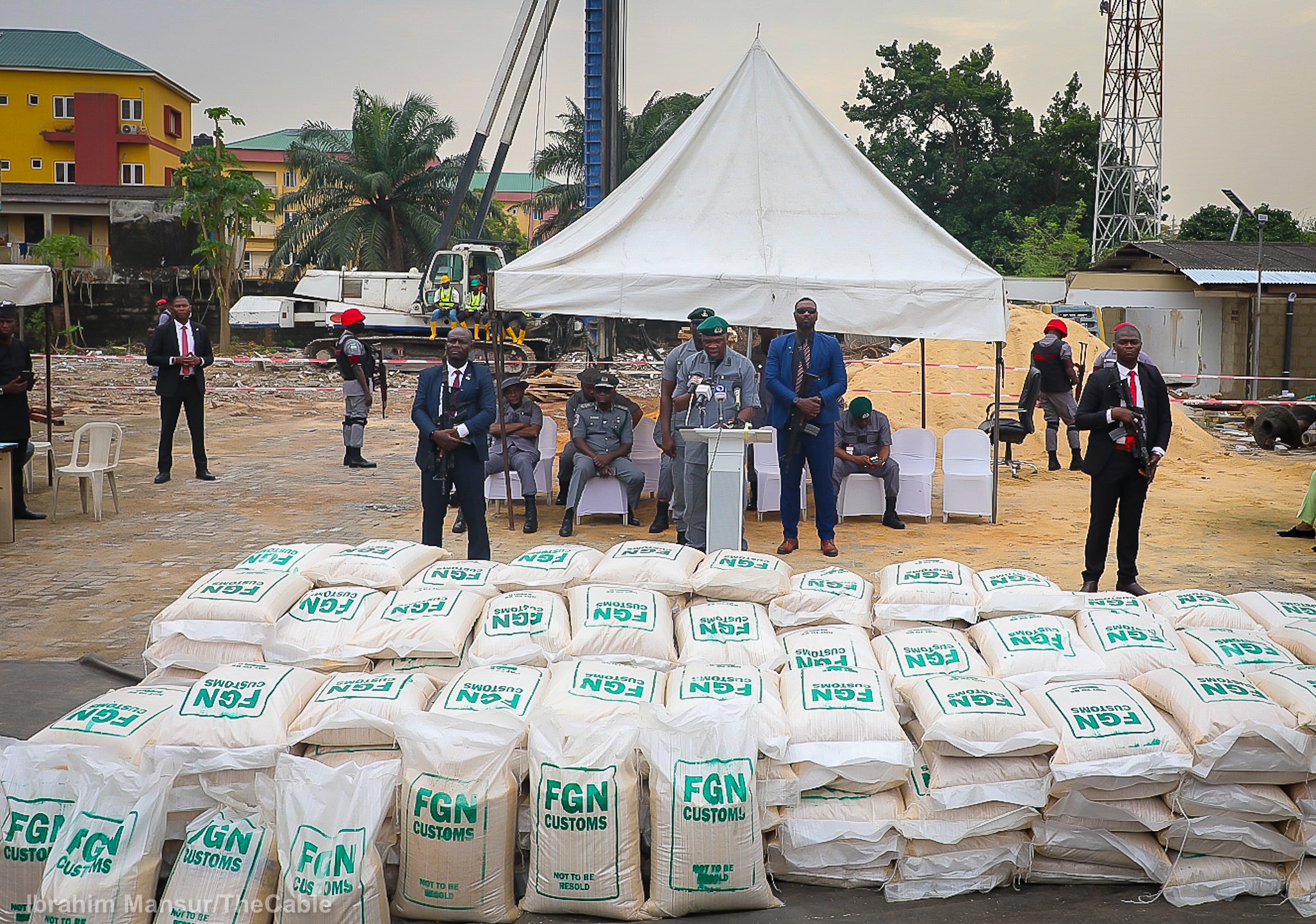The Nigeria Customs Service (NCS) says the beneficiaries of its planned distribution of seized food items must have a verifiable national identification number (NIN).
On February 20, 2024, customs had said seized food items would be distributed to Nigerians to help mitigate the current hardship in the country.
Speaking to journalists on Thursday, Bashir Adewale, comptroller-general of customs, said the decision, which followed government approval, is part of NCS’ dedication to ensuring food security in the country.
“As part of our ongoing commitment to safeguarding the food security of Nigerians, the NCS has secured approval from the government to dispose of these seized food items to needy Nigerians at discounted prices,” he said.
Advertisement
“The criteria for Nigerians to benefit from the initiative include having a verifiable national identification number (NIN).”
Adewale said the target groups are artisans, teachers, nurses, religious entities, and other Nigerians within its operational zones.

“The intention is to reach out directly to members through these organised structures to ensure the maximum impact of this exercise,” the comptroller-general said.
Advertisement
“To ensure the security and integrity of this initiative, NCS has put in place comprehensive measures. These measures encompass robust security protocols throughout the process.
“Our officers will be closely monitoring the entire supply chain to prevent any misuse or diversion of the food items. Moreover, we have established strict guidelines and eligibility criteria to ensure that the items are distributed only to those in genuine need.”
Additionally, he said NCS will be working closely with relevant agencies for guaranteed compliance with the terms of the programme.
“It is imperative that beneficiaries of this exercise understand that the items are not to be resold. We take a strong stance against any form of profiteering or exploitation of this initiative. We urge Nigerians to report any incidents of misuse or unauthorised resale of the seized food items,” Adewale said.
Advertisement
“NCS is fully committed to transparency and accountability in this process, and we will not hesitate to take decisive action against any individuals or entities found to be in violation of the terms of this program.”
The sale of food items, which will begin tomorrow across the zonal offices of the agency, will start with the sale of 25kg bag of rice at a discounted price of N10,000.
‘FOOD ITEMS CAN ONLY BE EXPORTED WHEN SUFFICIENT INTERNALLY’

Adewale said in recent months, the government has been addressing the challenges faced within the country, particularly the lagged effects of insecurity and the current exchange rate issues.
Advertisement
“These challenges have exacerbated concerns about food security, leading to a concerning trend where food items are moving out massively to neighbouring countries,” he said.
Some of the items listed by the comptroller-general include over 20,000 bags of assorted grains (rice, beans, maize, guinea corn, millet, and soya beans.
Advertisement
Also, 2,500 cartons and 963 bags of dried fish were listed among the items.

Others, he said, are dried pepper, tomatoes, cooking oil, maggi, macaroni, salt, sugar, and garri.
Advertisement
“This trend is not sustainable as it puts pressure on our productive capacity and threatens our food security,” he said.
“To address this, the NCS has remained responsive in carrying out its mandate to protect our borders from the inflow and outflow of restricted goods. One concerning trend noticed is the outflow of food items in huge quantities, posing a threat to our food security.”
Advertisement
Adewale said an item can only be exported if it is internally sufficient.
Consequently, he said food items that do not meet these specifications will be intercepted at the border.
Add a comment






